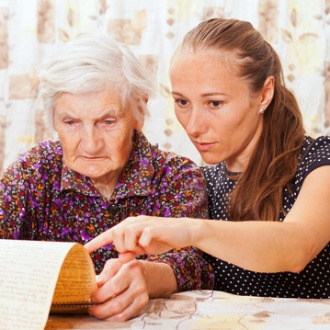NHS England launches voluntary standards to help GPs support carers

NHS England has unveiled plans to help GPs identify and support vulnerable young carers.
When the NHS long-term plan was released in January, NHS England announced new ‘quality markers’ – developed with the CQC – would be introduced to help carers find GP practices most suited to their needs.
The new voluntary standards for GP practices in England, revealed this week, include providing priority appointments, home visits and additional mental health checks for young carers, and double appointments for both the carer and the person they are looking after.
They also suggest setting up an alert system to notify GPs when a carer registers as a patient, and setting up a process for monitoring when young people come to the surgery.
Practices that take on the six quality markers will be assessed on their performance against them during CQC inspections.
According to research, up to one in five secondary school pupils provides a certain level of care for a parent or sibling, many of whom do not disclose their family circumstances to GPs and other health care professionals.
Researchers from charities Barnardo’s and the Carers Trust also estimated that 40% of young people endorsing a caring role have a mental health problem.
NHS England said the measures will help young carers ‘who may be hidden, unpaid and under the age of sixteen’.
NHS England’s director for experience, participation and equalities, Dr Neil Churchill, said: ‘Thousands of children and young people provide nothing less than life-changing care for their family and deserve in return the best possible support from the NHS and other public services. No young carer should feel they are struggling to cope on their own.
‘The responsibility of giving care can take a real toll and our long-term plan will deliver care for carers that matches the commitment so many young people give their family day in, day out.’
The GP carers quality markers were first tested by Surrey Heartlands Health and Care Partnership in March, with 76 out of 90 practices in the region choosing to include the markers for CQC inspection.
Surrey Heartlands ICS senior responsible officer Dr Claire Fuller, who is also a GP, said: ‘Surrey Heartlands is delighted to have been a pilot site for the new GP carers quality markers.
‘The quality markers offer a practice an opportunity to benchmark the support they offer to carers which in turn encourages them to be more consistent and build on best practice.’
Measures practices can implement to help carers
- Keeping an up-to-date carers register, to routinely offer all carers a flu vaccination, regular health check and anxiety and mental health screening;
- Setting up an alert system to notify all GPs when a carer registers as a patient, to ensure their needs are identified and met by the whole surgery;
- ‘Double appointments’ – carers being offered an appointment themselves to get physical and mental health checks when they come to the surgery with their cared for relative;
- Hosting carer support groups and carer clinics in GP surgeries, so young people can get practical carer and health advice at the same time, with other carers;
- ‘Carer awareness’ training will be included in every surgery staff induction;
- Practices setting up systems to track patterns of appointments in young people coming to the surgery with an adult, to proactively try to identify young carers and put support in place.
Source: NHS England
Pulse October survey
Take our July 2025 survey to potentially win £1.000 worth of tokens










